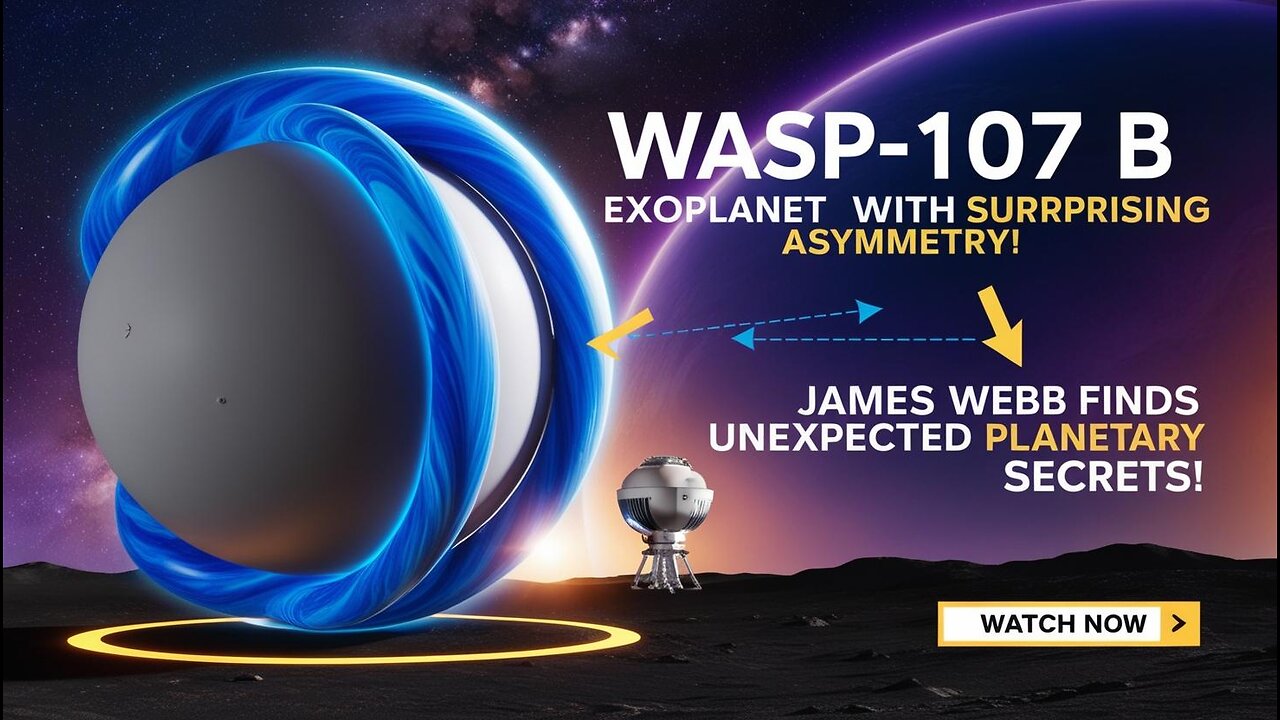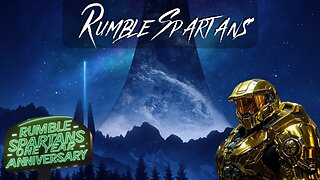Premium Only Content

"Astronomers Find Surprising Atmospheric Asymmetry on Exoplanet WASP-107 b!"
Astronomers Discover Major Breakthrough on Exoplanet WASP-107 b! 🌌
An exciting new study reveals groundbreaking findings about the exoplanet WASP-107 b, a "warm Neptune" located 200 light-years away! Using the James Webb Space Telescope (JWST), researchers discovered unexpected atmospheric asymmetry, challenging everything we thought we knew about exoplanet climates.
🌠 What Makes WASP-107 b So Special?
Despite being similar in mass to Neptune, this exoplanet is surprisingly low-density, making it one of the most inflated planets ever observed.
With a density of just 0.126 g/cm³ (one-fifth that of Saturn), WASP-107 b has an atmosphere dominated by hydrogen and helium—and the discovery doesn’t stop there!
🔭 Key Discoveries:
East-West Asymmetry: For the first time, astronomers observed temperature differences between the morning and evening sides of a cooler exoplanet. The evening side is actually hotter than the morning limb—something that current models couldn't predict.
First of Its Kind: This marks the first time such asymmetry has been observed on a planet with a lower equilibrium temperature (about 770 K / 890°F)—a temperature where we thought dramatic atmospheric differences would fade.
🌍 Why This Is a Big Deal:
James Webb’s ability to capture such high-resolution data allows us to study the atmospheres of distant exoplanets with unprecedented precision. This will completely change how we understand planetary climates beyond our solar system.
These findings may have huge implications for how we study other tidally locked planets and could lead to new theories on atmospheric behavior in cooler exoplanets.
🚀 Join us as we explore this game-changing discovery in exoplanet science. How does WASP-107 b’s asymmetry challenge our ideas about planetary atmospheres? And what could this mean for future space exploration?
👉 Subscribe to our channel for more deep dives into the latest space discoveries!
👍 Like this video if you're fascinated by the mysteries of exoplanets and space exploration!
💬 Comment below: What do you think these findings mean for future studies of distant worlds?
-
 1:00:52
1:00:52
Mike Rowe
6 days agoThe Sun Never Sets On Gene Simmons | #432 | The Way I Heard It
13.6K85 -
 1:58:31
1:58:31
Adam Carolla
10 hours ago $3.92 earnedJay Leno Does What Modern Politics Won’t: Taking Care of Family Without a Press Conference
8.11K3 -
 LIVE
LIVE
Akademiks
2 hours agoDay 2/30. Smurk on Stream?? 50 cent keep going at Big Meech. Kendrick to Buy Kanye West Catalog?
2,968 watching -
 UPCOMING
UPCOMING
BlackDiamondGunsandGear
5 hours agoThe TRUMP SLUMP?
173 -
 LIVE
LIVE
OhHiMark1776
5 hours ago🟢04-27-25 ||||| Halo Multiplayer Rumble: No. 13 ||||| Halo MCC (2019)
228 watching -
 2:12:28
2:12:28
TheSaltyCracker
2 hours agoThey Killed Her ReeEEEe Stream 04-27-25
71.4K122 -
 2:33:51
2:33:51
vivafrei
13 hours agoEp. 261: Criminal Judges ARRESTED! Election in Canada! Santos Sentenced! RFK Jr. & Autism & MORE!
146K57 -
 LIVE
LIVE
Amish Zaku
5 hours agoRumble Spartans "The One Year" Event
150 watching -
 LIVE
LIVE
Illyes Jr Gaming
3 hours agoLaid Back Sunday Night Warzone Stream!
62 watching -
 1:51:18
1:51:18
Nerdrotic
4 hours ago $5.43 earnedDiscoveries From Graham Hancock's "Fight for the Past" | Forbidden Frontier 099
30.3K5